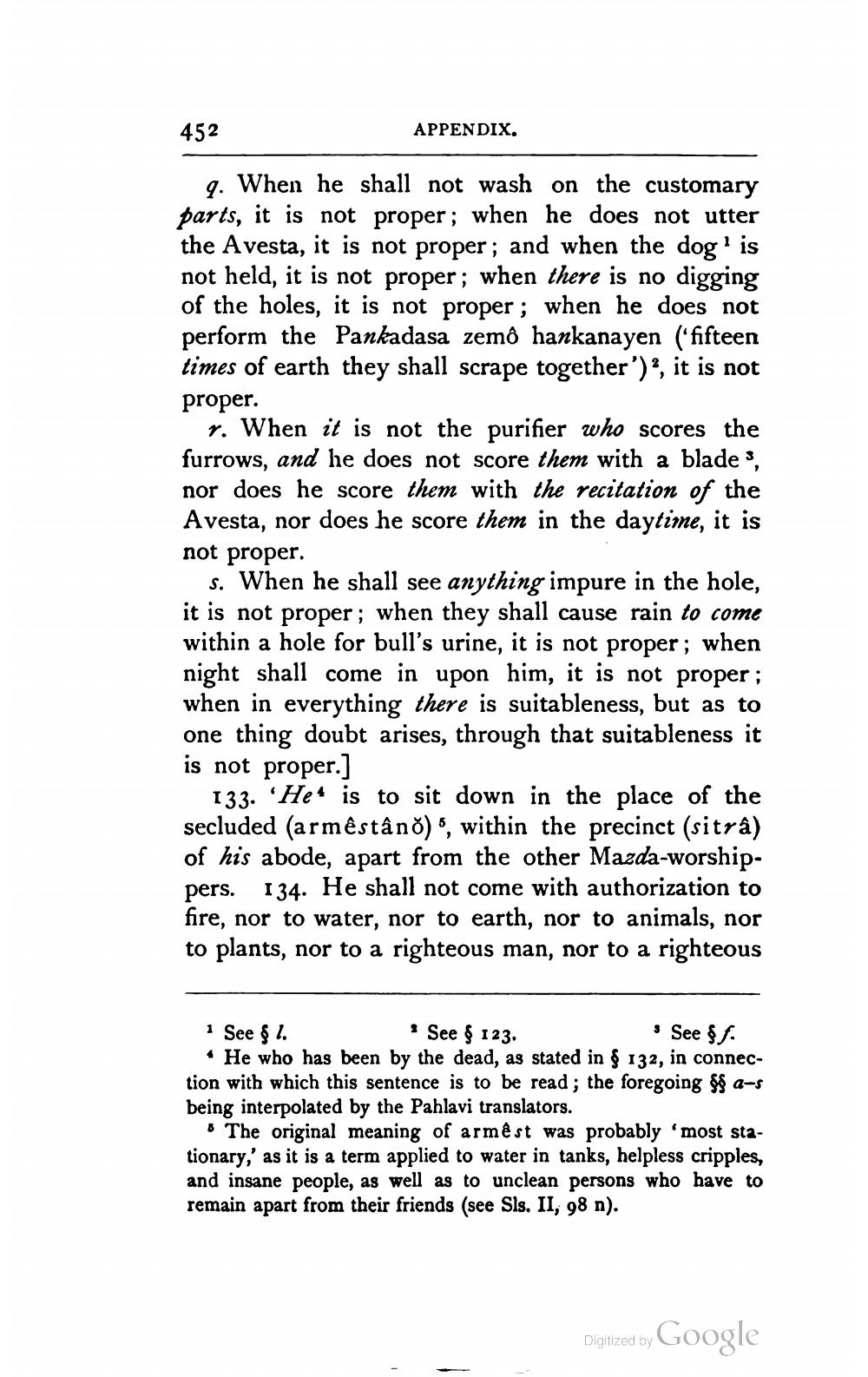________________
452
APPENDIX.
9. When he shall not wash on the customary parts, it is not proper; when he does not utter the Avesta, it is not proper; and when the dog' is not held, it is not proper; when there is no digging of the holes, it is not proper ; when he does not perform the Pankadasa zemô hankanayen (fifteen times of earth they shall scrape together')?, it is not proper.
r. When it is not the purifier who scores the furrows, and he does not score them with a blades, nor does he score them with the recitation of the Avesta, nor does he score them in the daytime, it is not proper.
s. When he shall see anything impure in the hole, it is not proper; when they shall cause rain to come within a hole for bull's urine, it is not proper ; when night shall come in upon him, it is not proper ; when in everything there is suitableness, but as to one thing doubt arises, through that suitableness it is not proper.]
133. Het is to sit down in the place of the secluded (armêstâno), within the precinct (sitra) of his abode, apart from the other Mazda-worshippers. 134. He shall not come with authorization to fire, nor to water, nor to earth, nor to animals, nor to plants, nor to a righteous man, nor to a righteous
1 See $1. . See $123
See $f. * He who has been by the dead, as stated in $ 132, in connection with which this sentence is to be read; the foregoing $$ a-s being interpolated by the Pahlavi translators.
• The original meaning of armest was probably 'most stationary,' as it is a term applied to water in tanks, helpless cripples, and insane people, as well as to unclean persons who have to remain apart from their friends (see Sls. II, 98 n).
Digitized by Google




